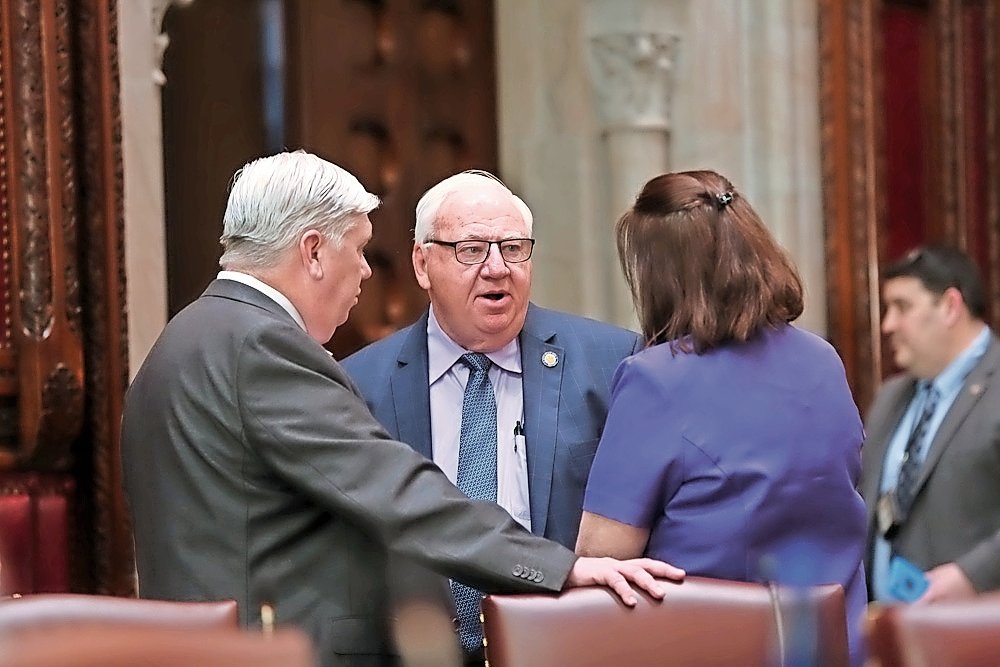Brooks pushes tax relief legislation in State Senate
State Sen. John Brooks is fighting to alleviate the tax burden felt by his business and home-owning constituents. The Seaford Democrat has recently sponsored and co-sponsored three pieces of property tax legislation that, if passed into law, would not only ease the tax burden on small business owners and active military members, but also address the school district wealth gap on Long Island.
The bill that affects small business owners aims to effectively eliminate the cap placed on state and local tax, or SALT, deductions for businesses in New York. Federal legislation in 2017 capped the amount of state and property taxes that individuals can deduct from their federal income tax forms at $10,000 — but many New Yorkers, especially on Long Island, pay much more in property taxes alone.
Owners of S corporations, partnerships, and limited liability companies in New York currently pay their taxes as individuals. The bill, S2915, would give business owners an option to pay these taxes through their business entity, which is not subject to the SALT cap.
Regarding school funding, Brooks takes a novel approach to homeowner property tax relief, particularly in less-wealthy school districts. Such districts often exist where profitable businesses are few, or where businesses have payment-in-lieu-of-taxes, or PILOT, agreements.
A PILOT allows a business to agree with a municipality not to pay its full property. Lack of business tax income can pass the burden of funding a local school district to homeowners, whose property taxes get raised to make up the difference.
However, if Brooks’ legislation, which is currently introduced on the senate floor, passes, homeowner property taxes would not be expected to fund more than 50 percent of a school district’s budget. New York State would alleviate any shortfall.
“Here on Long Island in particular, in so many districts we’re funding 70 percent or more of our education through property taxes,” Brooks said. “Easily, [taxpayers] are going over the $10,000, and they’re getting double-taxed on the money that’s in excess of the $10,000 — we need to put an end to that.”
“All of this will equal $1.1 billion in savings to working and middle-class homeowners without raising any taxes,” according to Brooks.
Additionally, the gap in per-pupil spending between more and less wealthy districts would be reduced, so educational opportunities could be much more evenly distributed.
Another bill, which has unanimously passed the state senate, will help active military members. According to a press release from Brooks’ office, the legislation will authorize municipalities to offer a real property tax exemption for property owned by active-duty service members in a combat zone.
“This bill is meant to provide further stability and support for military families,” Brooks said. Currently, U.S. military veterans can claim a property tax exemption under New York state law, but Brooks said the same exemption should be available for those who are currently serving.
If the bill is signed into law, active-duty military members can claim an exemption for up to 15 percent of their home’s assessed value, but the claim cannot exceed $12,000.

 50.0°,
Overcast
50.0°,
Overcast 




